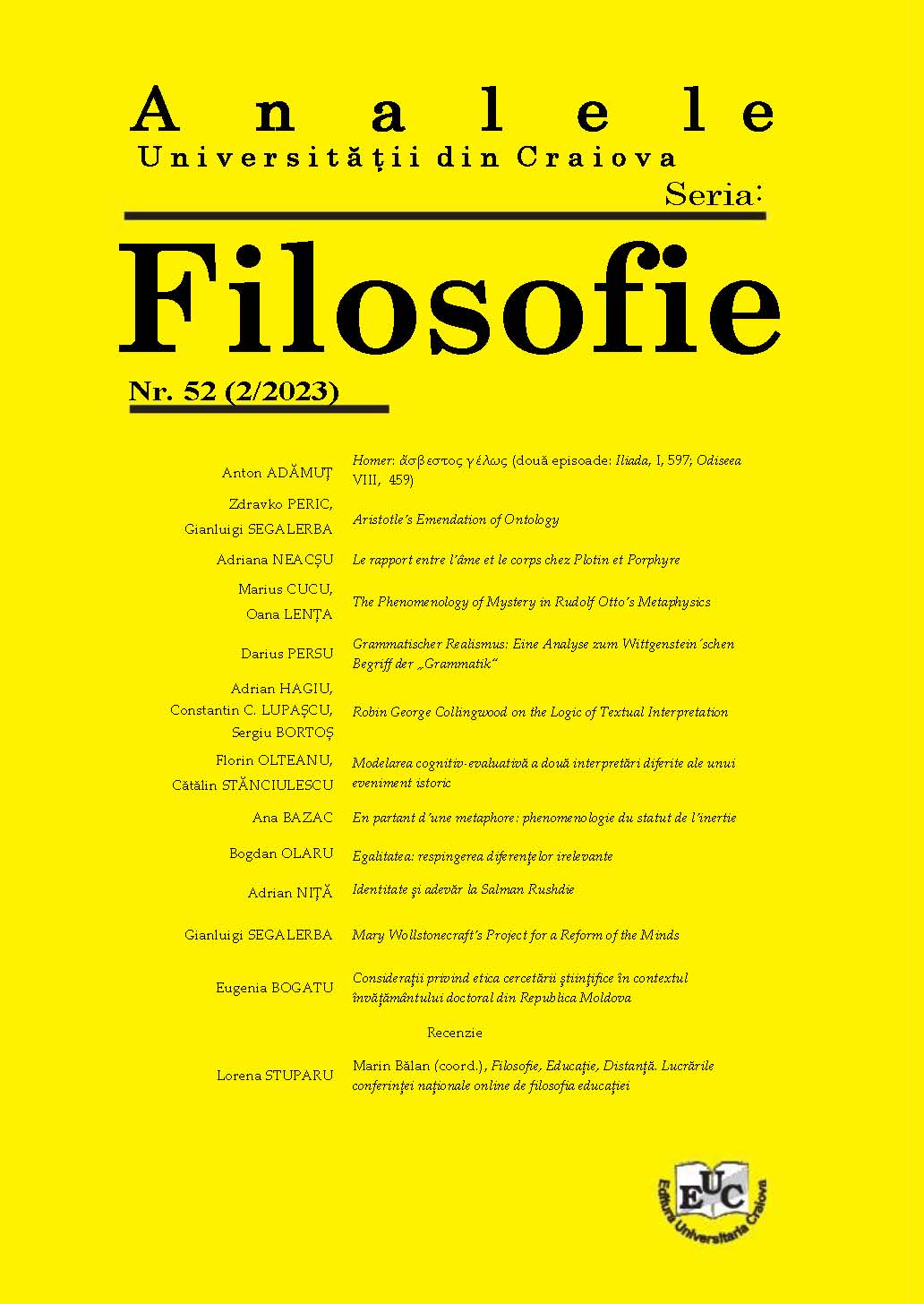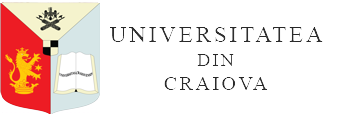MARY WOLLSTONECRAFT’S PROJECT FOR A REFORM OF THE MINDS
DOI:
https://doi.org/10.52846/afucv.vi52.65Cuvinte cheie:
Wollstonecraf, Vindication, education, virtue, reason, independence, wisdomRezumat
In my investigation, I analyse aspects of Mary Wollstonecraft’s thought regarding the traditional education of women, her programme of education, the question of women’s rights, and the condition of women. I moreover investigate Mary Wollstonecraft’s proposal of new theological foundations for religious belief. Mary Wollstonecraft aims to propose a revolution in female manners. Her revolution is a revolution of minds: she aims to reach a complete reform in the education and the formation of individuals, in general, and of women, in particular. Mary Wollstonecraft’s revolution is a revolution for the spiritual independence of individuals. To reach the condition of independence, traditional education ought to be criticised and refused since traditional education is the system through which women are transformed into dependent entities. Power over oneself, liberation from passions, and autonomy of judgment are the main targets of Mary Wollstonecraft’s programme of education. The correct foundation of the individual ought to be reason. Mary Wollstonecraft proves to be a deeply religious thinker: she steadily connects the promotion of the dignity of mankind to a new way of worship of Deity. The centrality of reason profoundly influences her theological assumptions: Mary Wollstonecraft refuses all forms of reverence based on blind submission to God. The main texts of my inquiry are A Vindication of the Rights of Woman and A Vindication of the Rights of Men.


